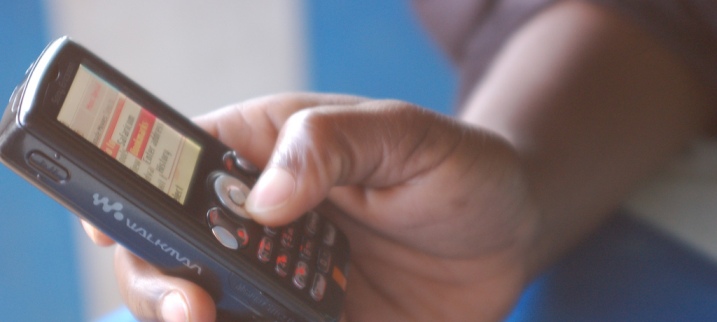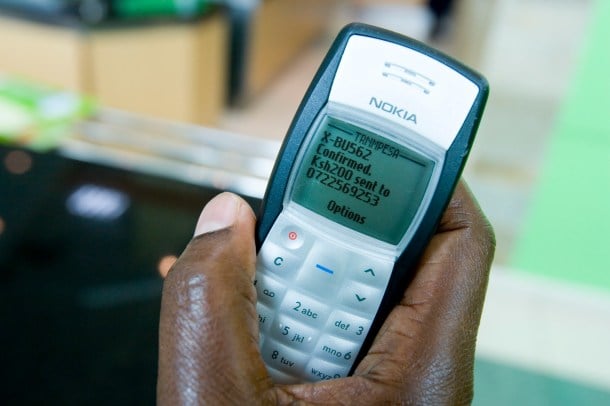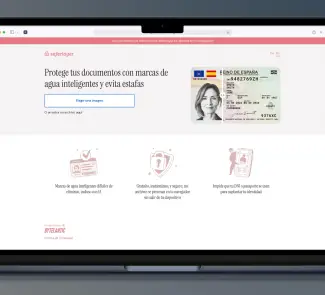The continent where mobiles have changed things the most has been Africa, because mobiles have given millions of people access to services that are within reach of everybody in developed countries.
The mobile revolution has had – and continues to have – the greatest social and economic impact not in the US, Europe or China, but in Africa. This technology has triggered enormous changes in many areas, such as the micro-economy, and even in health care and agriculture. And not to mention an increase in citizen participation as a result of the freedom of expression stimulated by the social networks, that also serve as a loudspeaker for demands that were previously lacking an audience.
The mobile revolution in Africa has taken place at a dizzying pace. From the year 2000 to 2010, the annual growth in the number of mobile users has averaged 30%. This doesn’t mean that the country is filled with smartphones; in fact, only 18% of the handsets are smartphones, and the rest are traditional phones, although the number of smartphones is expected to double over the next four years. But the expansion of these devices has provided access to a series of very useful services.
Possibly the most significant change has been in financial transactions. In many countries of Africa, there are few banks in comparison with the number of inhabitants. The rate is very low because the population is frequently spread out in rural areas and it is not profitable to open a branch in those areas, in addition to the lack of security in some regions. It may be for this reason that Kenya has what could be considered the most successful mobile payment service in the world, M-PESA, with more than 18 million users in a country with a population of 43 million.
Before, Kenyans were required to go to a bank branch, sometimes dozens of kilometres away, to make transfers they can now make by text message. The user goes to an authorised M-PESA agent, pays the corresponding quantity and sends the text message. The recipient just has to contact another agent of the company, show the text message and receive the money.
In Nigeria, with 120 million mobile users, the start-up Paga has started its own service to provide payments via mobiles, and it has grown 847% in its first year of activity. These technologies also provide users with access to financial markets, allowing them to invest or take out loans. In addition, e-commerce allows purchases to be made online, with products picked up at a single location.
A stimulus to address basic needs
Education, health care and agriculture (the basis of the economy in many regions) have also improved with the arrival of mobile devices. Organisations such as Worldreader and Binu are taking advantage of digital content, and the functions offered by books in electronic format to expand education and increase literacy.
Health care is another pending task. In most cases, the health care system is deficient, and is practically non-existent in the more isolated areas. The MAMA (Mobile Alliance for Maternal Action) service provides maternity advice via mobile phones. In Malawi, a programme has been started to measure the bio-rhythms of patients in rural areas using smartphones.
And just as mobiles are used to give health advice, they are also used to provide information on agricultural questions. The Esoko mobile messaging service provides real-time information on the prices of crops on the markets, along with the weather forecast and other relevant information.
What a smartphone is worth in Africa
What Windows did for much of the world in terms of PCs, smartphones are doing for Africa in terms of the Internet. And this means access to information, which is lacking in most of the continent, since there are a large number of villages far from urban centres. Thanks to the Internet, people can obtain knowledge that nobody taught before and that was not stored anywhere, such as improved farming techniques, access to information on official procedures or to communicate with people in other areas.
In some countries, we’ve seen how in recent years social networks – mainly Facebook, Twitter and YouTube – have helped to facilitate expression for people, increasing the freedom of opinion and the spread of information, which ultimately led to an increase in citizen participation in the political life of some parts of Africa. Thanks to these platforms, which are often accessed with smartphones, it has been easy to mobilise entire communities, which is a sign of social evolution.
Image: whiteafrican / Europarchive










